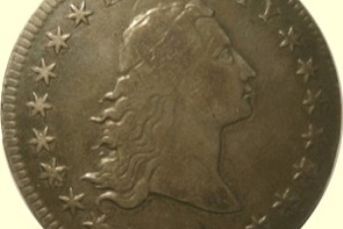Platinum coin gets gold medal compared to alternatives
Prioritization? Taking the debt ceiling to court? These suggestions could do serious harm
Donald Marron, head of the Brookings-Urban Tax Policy Center and former director of the Congressional Budget Office, wrote a great post yesterday arguing for the platinum coin as a last resort in the deficit-ceiling standoff. He says something particularly important about the alternatives to the coin:
Analysts have considered a range of other options for avoiding default, including prioritizing payments, asserting the debt limit is unconstitutional, and temporarily selling the gold in Fort Knox. All raise severe practical, legal, and image problems. In this ugly group, the platinum coin looks relatively shiny. In particular, it would be much less provocative than President Obama asserting the debt limit is unconstitutional.
Nearly everyone (including me) seems to agree that the best solution is for Congress to take action so that we don’t hit the debt ceiling. But if that doesn’t happen, most opponents of the platinum coin seem to prefer either payment prioritization or invocation of the 14th Amendment as a Plan B. Both of these options would be way more damaging than the coin.
Under prioritization, the federal government would make payments only to the extent they can be covered by current receipts from channels other than borrowing, mainly taxes. That means it would be able to pay roughly 60 percent of its bills.
Republican Senators Pat Toomey and John Cornyn have both advocated this path, with Toomey saying, “We Republicans need to be willing to tolerate a temporary, partial government shutdown.” But can the country tolerate it?
As the Bipartisan Policy Center lays out in an essential presentation, payment prioritization is hugely problematic in two ways. One is that 40 percent of government spending is a lot, and there is no way to shut down two-fifths of the government without stopping activities of great importance.
The other — not appreciated by most of prioritzation’s proponents — is that the federal government’s receipts and expenditures are lumpy, and just because it could afford 60 percent of scheduled spending on average doesn’t mean it could afford that on any given day.
It would be impossible to give certainty to people and entities owed money by the federal government about when and whether they would be paid; they would have to wait and see how much money the government could come up with on any given day. For example, it might be possible to pay Social Security recipients on most days, but not on certain days when few revenues come in or lots of payments are scheduled to go out. There are even a handful of days each year when a very large amount of bond interest comes due, so much that it exceeds that day’s receipts. February 15 is expected to be one such day. That means a prioritization strategy would not necessarily avoid bond default, even if bond interest was placed first in payment priority.
There are other problems with prioritization — it’s probably legal, but we don’t know for sure, and people who don’t get paid would sue; we also don’t know whether Treasury has the logistical capability to prioritize payments effectively. But the size and uncertain nature of the spending cuts alone make it an unworkable debt ceiling option.
While conservatives tend to point to prioritization in lieu of the coin, liberal objectors are more likely to argue that the 14 Amendment’s Section 4 makes the debt ceiling unconstitutional. I think they find this appealing because “it’s unconstitutional” sounds less silly than “let’s mint a huge coin.”
But as Marron notes, this would actually be a much more radical option than minting the coin. While the legality of the coin option is unambiguous, the 14 Amendment claim would be hotly debated and litigated. The House might well impeach the president.
And unlike the coin, it couldn’t be unwound. Any bad precedent set by minting the coin could be addressed by repealing the president’s authority to mint coins of unlimited denomination. The 14th Amendment route would have the president assert a major new claim of executive power that would be difficult to reverse.
Minting the coin is not without risk, which is why Congress should pass a clean repeal of the debt ceiling so that we do not have to do so. But if we hit the debt ceiling, we will have to compare the coin against other available options, all of which are less appealing.
–Bloomberg News–
(Josh Barro is lead writer for the Ticker. The views expressed are his own.)
Learn more about reprints and licensing for this article.




